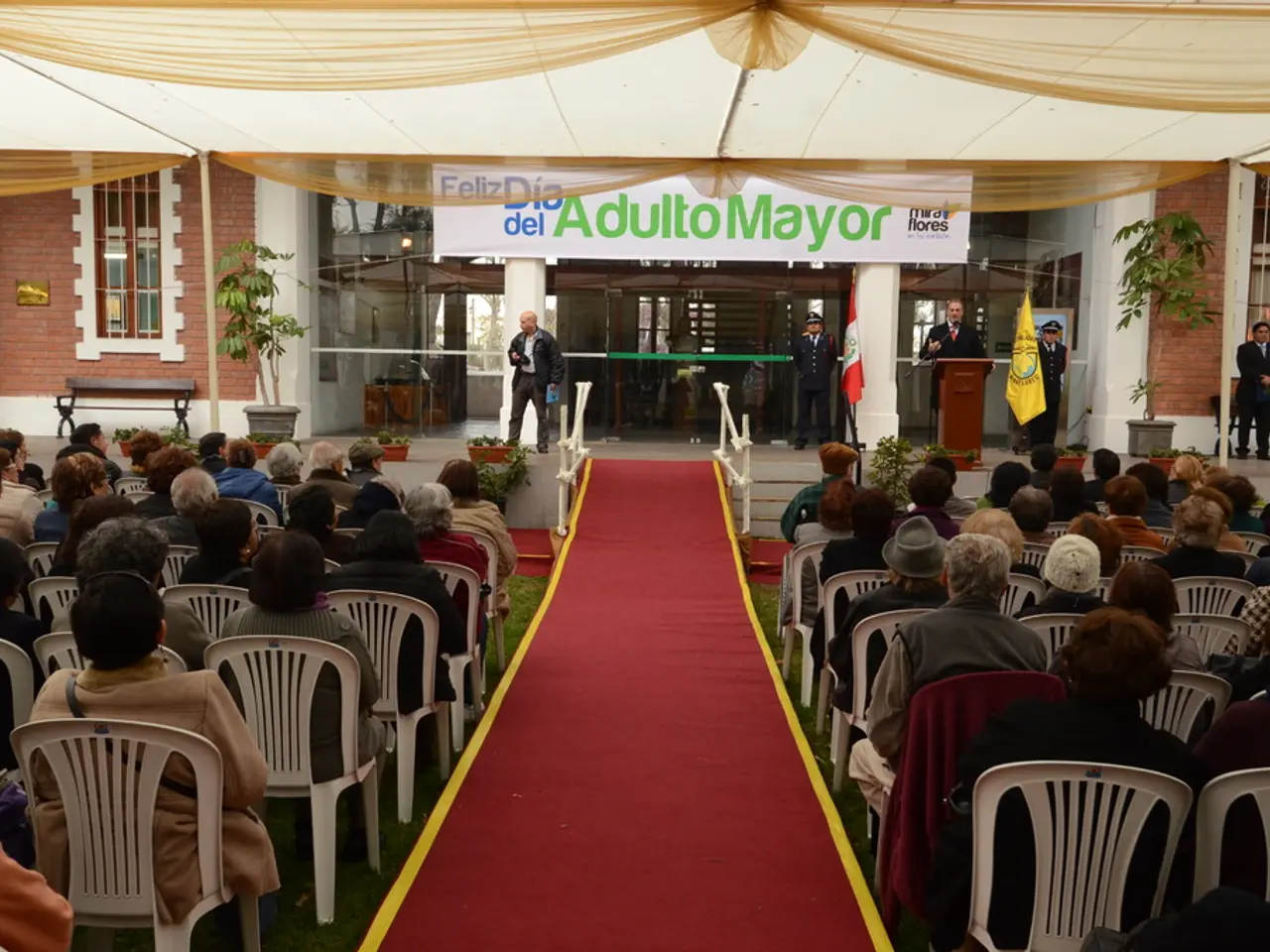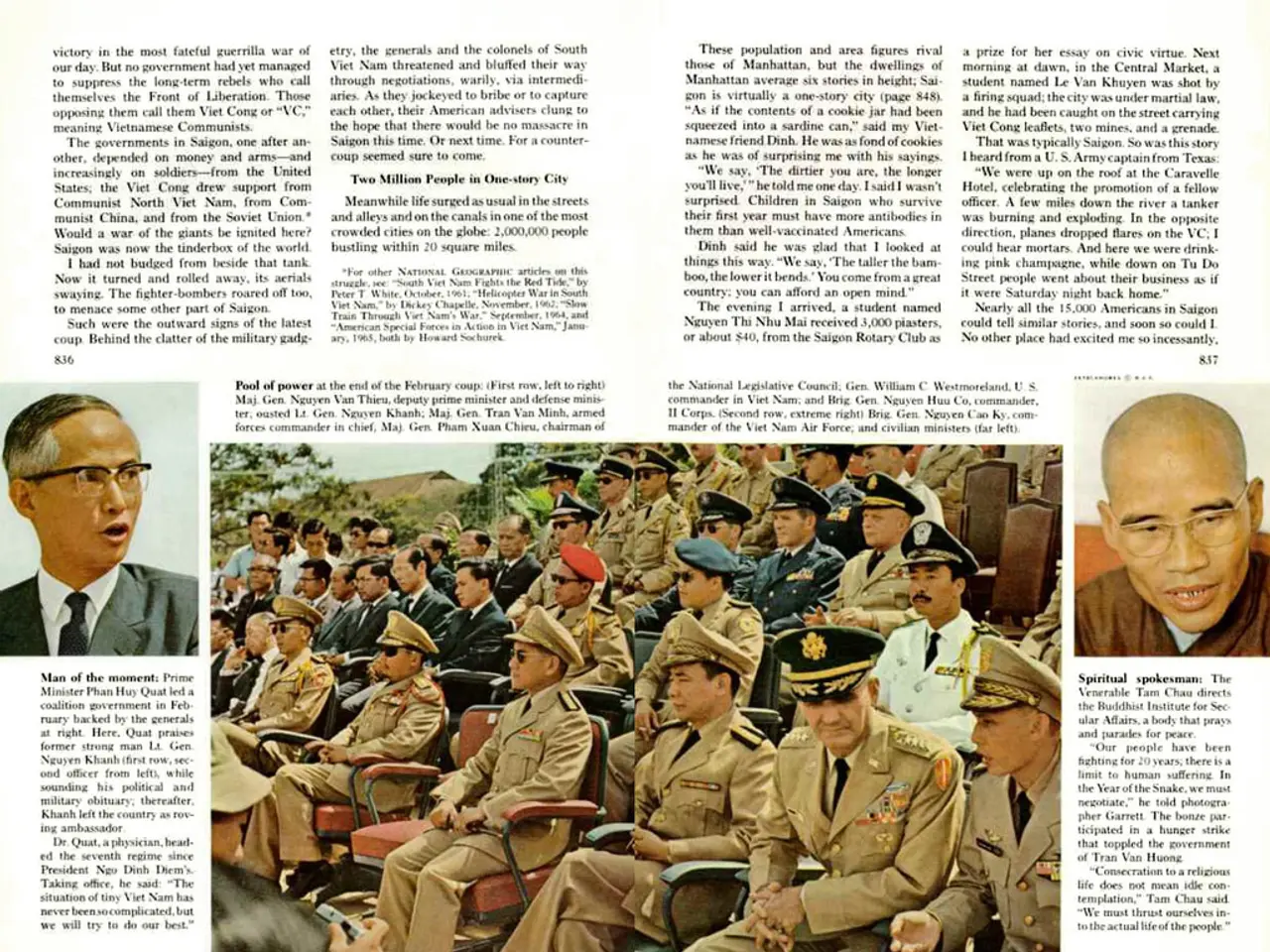"Prime Minister Shehbaz takes a hardline approach against extremism, praises ongoing counter-terror operations"
Pakistan's Counterterrorism Efforts: A Multifaceted Approach
In a significant move, Prime Minister Shehbaz Sharif chaired a high-level meeting of the steering committee on counterterrorism, reaffirming his government's determination to eliminate terrorism from the country. The meeting, referred to as the "Harden the State" initiative, aimed to discuss and implement strategies to strengthen security and intelligence cooperation.
The prime minister praised the coordination between federal and provincial governments, highlighting the unified war against terrorism that has brought together the armed forces, intelligence services, law enforcement, and the Pakistani people. He credited Pakistan's counterterrorism approach for its combination of ground operations, legislation, public engagement, and efforts to curb extremist ideologies.
The prime minister also confirmed that the repatriation of illegal Afghan migrants is continuing in line with international law. He also addressed the threats posed by groups like "Fitna-e-Hindustan" and "Fitna-e-Khawarij", stating that the government is actively working on a comprehensive and actionable strategy to eliminate these threats.
The prime minister appreciated the role of the Counter Terrorism Departments, particularly in Punjab, and the contributions of the Interior Ministry and the Intelligence Bureau. He pointed to recent gains in the Pakistan Stock Exchange and improved global credit ratings as signs of economic recovery, suggesting that the country's counterterrorism efforts are having a positive impact on the economy.
Pakistan has adopted a multifaceted strategy to tackle militancy and violent extremism. Key aspects of this strategy include military and intelligence coordination with partners such as the United States to stabilize South Asia and prevent attacks. The country seeks a sustainable peace architecture in South Asia involving the US's role as a stabilizing arbitrator and aims to reduce reliance on last-minute conflict interventions.
Dealing with terrorist groups remains a challenge, with Pakistan acknowledging the emergence of new groups like the Resistance Front. However, the state continues efforts to monitor and counter such groups. International relations and security concerns are also a focus, with Pakistan working diplomatically to manage its global image and regional security challenges.
The prime minister directed full implementation of the committee's recommendations to bolster security and intelligence cooperation. Joint actions by relevant institutions have curbed smuggling, which has had a positive impact on the economy. The prime minister expressed pride for the brave officers and soldiers who have laid down their lives for the motherland.
In a recent development, the US CENTCOM chief labeled Pakistan as an 'exceptional counterterrorism partner', reflecting the positive relationship between the two countries in their joint efforts to combat terrorism. The prime minister's meeting comes at a crucial time, signaling Pakistan's commitment to ensuring national security and regional stability.
- In addition to addressing domestic terrorism, the prime minister acknowledged the importance of monitoring and countering new threat groups such as the Resistance Front, which falls under the category of 'crime-and-justice'.
- As part of Pakistan's multifaceted approach to ensure regional stability, the country is engaging in diplomatic efforts with the United States to establish a peace architecture and reduce reliance on last- minute interventions, making 'politics' and 'general-news' vital components of this strategy.








